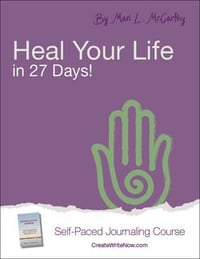 Have you ever done a fast? Committing to no desserts, or no media, or no shopping sprees for a certain length of time -- that sort of thing? Often, people think of fasting as a period of no eating at all. There are “juice fasts” or someone might “fast on bread and water.” Each morning, we break the fast we’ve held overnight. And today is Ash Wednesday – that Christian holy day of fasting.
Have you ever done a fast? Committing to no desserts, or no media, or no shopping sprees for a certain length of time -- that sort of thing? Often, people think of fasting as a period of no eating at all. There are “juice fasts” or someone might “fast on bread and water.” Each morning, we break the fast we’ve held overnight. And today is Ash Wednesday – that Christian holy day of fasting.
There’s nothing romantic about fasting; it’s difficult and generally unpleasant. At least at first. After a while, a fast will produce marvelous benefits for body, mind, and spirit. But before achieving these healthy effects, fasting can be seriously challenging.
And when there’s a challenge, your journal always comes to the rescue! You know you can count on an ally in its pages.
Certainly, obsession with food might be countered by fasting from food. But you might be obsessed with fashion, or another person, or a project you’re doing. These are not necessarily bad things to be fascinated with. But if their power means your life becomes lopsided, take a break by fasting for a while.
You may not have considered doing a fast, but you can use journaling to explore some possibilities.
Ask the question, What am I feeling obsessed about these days? What has me all worried and blue? Or what dominates my thinking all day? Journal your responses.
Then ask, What kind of fast would ease this obsession, moving me to a more healthy and balanced state?
- If you’re worried about money, fast from spending.
- If you’re dangerously in lust with someone unattainable, fast from all contact with things that bring that person to mind.
- If you are scared about an upcoming change in your life, fast from negative thoughts, solemnly deny yourself any moments spend in fear, enforcing the rule through your steadfast Inner Coach.
Notice that a fast is time-bound. You’re not expected to fast indefinitely. It’s an exercise that strengthens and empowers you.
So try a journal writing process like this:
- Plan. Give your fast a title and description in your journal. Decide start and end dates. List anticipated benefits and obstacles. Sketch out some ideas about how you will surmount the obstacles when they come up.
- Coach. Talk about every little thing that you notice in connection with the fast. Complain about its difficulty, worry about your strength and resolve, notice what you notice. Did you start your fast and then fail? Did you almost reach the end and then backslide? Are you thinking the whole thing was a bad idea? Discuss it all with your journal.
- Reflect. How did it go? What’s your overall assessment? If you feel you’ve failed in some way with your fast, how should it be re-designed? Changing the rules or the time frame of a fast may make success far more possible for you; and just a little success will lead to much more!
Do you find yourself dwelling on missed opportunities? Or perhaps you're having trouble making sense of it all? Please download our free ebook, CreateWriteNow's Expert Guide to Therapeutic Journaling, shows you journaling can provide the tools you need to achieve the happiness we all deserve.
Our Heal Your Life in 27 Days self-paced course shows you how to use the power of journaling to embark on an inner journey that will help you discover and recover your truest self.



Leave Comment